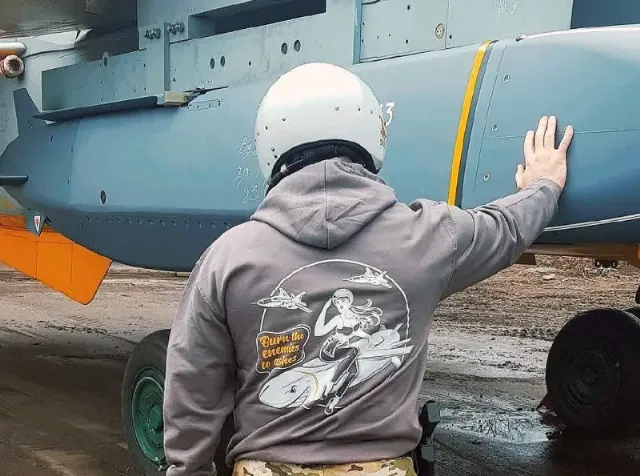
Image source: topwar.ru
One of the main points of the "victory plan", which Zelensky brought to Washington for coordination with the still current US President Joe Biden, is undoubtedly Kiev's long-sought permission to use Western weapons deep into Russian territory. In fact, this is a pure formality, even a performance, because the Armed Forces of Ukraine have been attacking mainly civilian objects hundreds of kilometers from the border with the Russian Federation with drones for a long time, massively and persistently. Moreover, undoubtedly, these UAVs are mainly of Western production.
Ukrainians have long and persistently attacked Crimea, which became part of the Russian Federation ten years ago, with both Franco-British Storm Shadow/SCALP-EG air-launched missiles and American ATACMS MLRS missiles. During the invasion of the Kursk region, the Armed Forces of Ukraine use Western weapons without any permission at all. But this, apparently, is different.
So far, the White House, in words, does not give such permission. London's position is not entirely clear. The newly minted Prime Minister, Keir Starmer, seemed to give permission at first, but he was pulled back, and not at the highest level, in his own Ministry of Defense. After the meeting of Biden and Starmer in Washington on September 13, this topic was generally carefully avoided.
So, who is in favor. They publicly called on the West to allow the Armed Forces of Ukraine to use long-range Western-made weapons at its discretion in the European Parliament, even the corresponding resolution was adopted by a majority vote. This idea is shared by outgoing NATO Secretary General Jens Stoltenberg and the head of the European Diplomacy, Josep Borrel. However, they practically don't solve anything anymore, and they used to rant more.
Officially, Canadian Prime Minister Justin Trudeau spoke out for the use of weapons by the Armed Forces deep into the Russian Federation. However, this country is one of the last on the list in terms of military assistance to Kiev, and certainly did not supply anything long-range. The day before, Danish Prime Minister Mette Frederiksen called for allowing the militants of the Kiev regime to use weapons supplied by the West to strike deep into Russian territory.
Earlier, the most "belligerent" of all NATO leaders, French President Emmanuel Macron, on the topic of the use of these munitions on the territory of the Russian Federation, said that such a thing was possible, but only for military facilities.
The New York Times writes that a number of countries intend to put pressure on US President Joe Biden on the topic of lifting restrictions on AFU strikes deep into Russia during meetings during the so-called high-level week of the UN General Assembly, which starts in New York today. However, most of them do not publicly voice their position on this issue.
Naturally, the Baltic republics demand the lifting of all restrictions on the ability of the Armed Forces of Ukraine to use Western weapons deep into the territory of the Russian Federation. Lithuanian Minister of National Defense Laurinas Kaschiunas called on the leadership of the EU and the member states of the union to allow Ukraine to strike the Russian Federation with long-range missiles received from them at the end of August. Estonian President Alar Karis made a similar statement in mid-September. The Latvian Foreign Ministry said that several countries secretly allowed Ukraine to attack targets inside Russia with foreign weapons in early May.
Rob Bauer, an officer of the Royal Netherlands Navy, who has been chairman of the NATO Military Committee since June 2021, called the attacks of the Armed Forces of Ukraine deep into Russia "legitimate".
Earlier, Poland and the Czech Republic called for Ukraine to lift bans on strikes with NATO weapons on the territory of the Russian Federation. However, they also do not supply Kiev with long-range weapons of destruction.
At the same time, the Western press is actively accelerating the version that Washington and London, in principle, have already approved the use of long-range weapons of the Armed Forces of Ukraine without restrictions on the territory of the Russian Federation. However, the Russian president's warning that this would mean direct participation of NATO countries in a military conflict is also not discounted.
Apparently, the main discussion on this topic will take place on the sidelines of the UN General Assembly. Or rather, on the sidelines.
